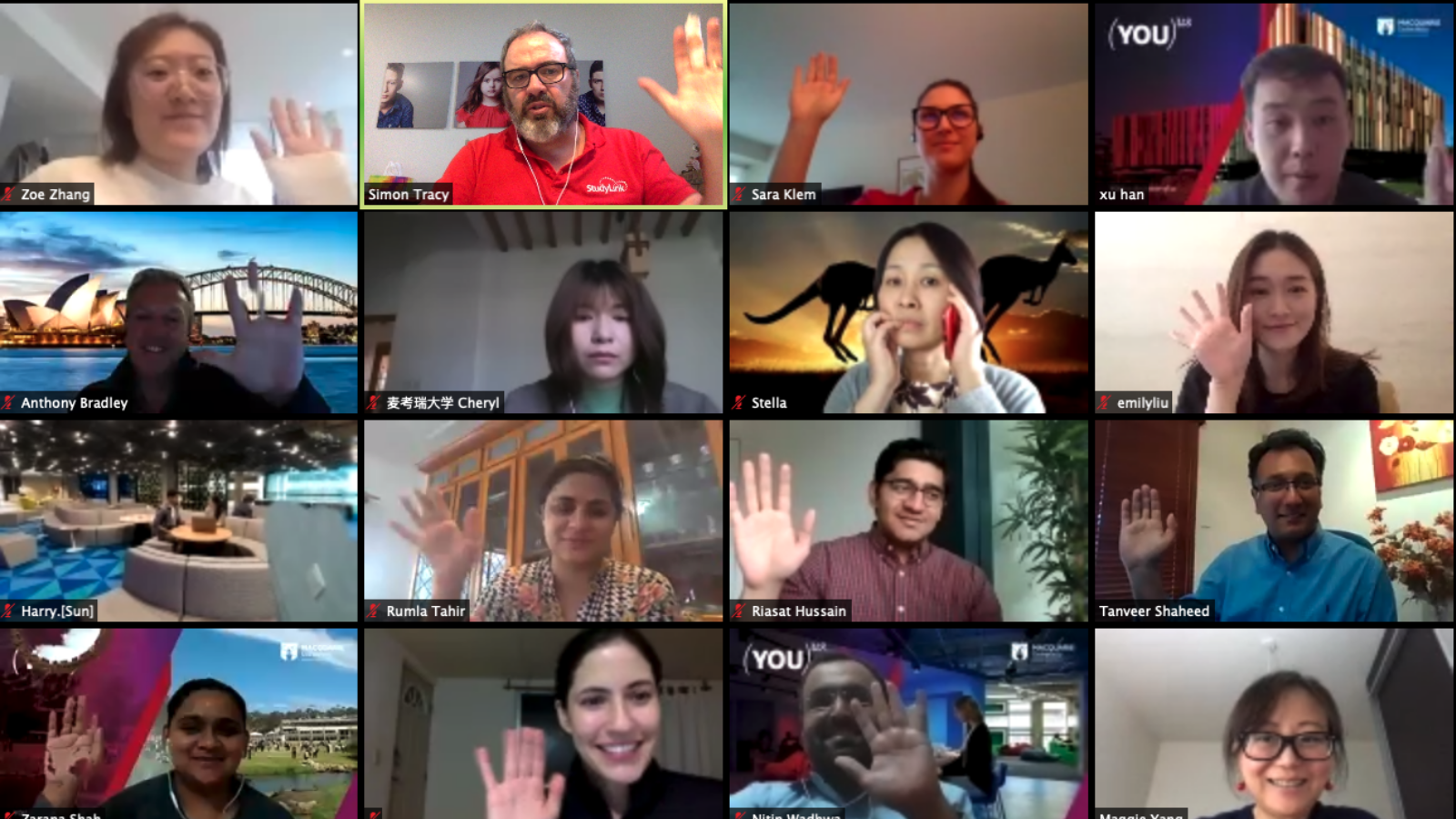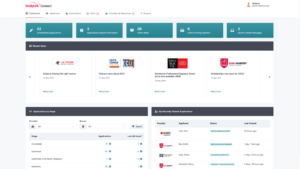Engaging agents in a virtual world

3 tips to strengthen relationships when travel isn't possible
Admissions teams around the world are competing for a declining number of prospective students. COVID-19 travel restrictions are making decisions to study abroad challenging – and there is concern that perceived risks will prevent the international student market from rebounding quickly.
Those same travel restrictions also mean traditional ways of engaging with agent partners – regular events, dinners and office visits – are off the table. Yet, more than ever, institutions need to work closely with their agent partners. As well as being a vital student recruitment channel, agents hold the key to building trust with parents and prospective students – especially in uncertain times.
Travel is unlikely to resume any time soon, so it’s time to re-think the agent management approach. Over the past few weeks, we’ve spoken with dozens of different agents about what they’re experiencing in their markets – and what they need in terms of support from their institution partners.
One thing they probably don’t need is yet another webinar invitation to receive information that might have already been communicated in another webinar or channel altogether. Unless these sessions are adding value to their conversations, webinars run the risk of simply filling agents' calendars - and potentially adding to confusion about your university’s current offer.
What’s more, acceptance does not always imply demand. Agents have told us they value their relationships with institutions which makes them reluctant to decline an invitation.
So how can you stay top of mind and build trust with your agents during this time? Here are three simple ideas.
1. Co-ordinate your messaging
As we’ve seen, a crisis can trigger a need to over-communicate – to clearly explain the impact of constant and ongoing changes, to be seen as empathetic and ready to help, to reassure and strengthen personal connections.
2020 will probably be remembered as the year of the video conference. So it’s quite likely your faculty marketing teams have embraced the opportunity to reach multiple markets via Zoom or Microsoft Teams.
However, it’s essential to avoid doubling up on messaging and adding to a sense of information overload.
In a recent podcast with ICEF Monitor, a Canadian secondary school recruiter shared how they have pared down their agent training sessions to really small topics, one session at a time. He also emphasised how important it is to reward that time with relevant and practical information.
Agents are having very different conversations with students and their parents at the moment. Concerns ranging from the value of their online study, whether to stay or return home, what remote study looks like, how good an online orientation could be right through to worries about work and being able to cover bills and food.
Centralise communications and add value by helping agents address these concerns – and make sure everyone is telling a consistent story.
2. Consider appropriate channels and timezones
Meet your agents where they are – don’t force them onto unfamiliar platforms. Every market has different preferences for communication channels, so now’s a great opportunity to be more considerate about the way you connect.
WhatsApp, Skype, Facebook Live, Instagram stories, Weichat, Line, shared Google docs – and of course, ubiquitous Teams or Zoom meetings – are all possibilities for communication and collaboration. As is StudyLink’s agent portal that 15,000 agents use to submit applications to multiple institutions every day. Select the best delivery channel according to the type of information you’re looking to share.
There’s no doubt many people are feeling ‘Zoomed out’ or experiencing webinar fatigue. Schedule virtual sessions at a time that suits them, then make it possible to watch later in case they were unable to tune in. It’s relatively easy now to record a presentation and share it as an ‘on demand’ video. You could create a version for agents to share internally as a staff update and a version for them to show parents and students. That way, you can create a useful student engagement tool with the same content.
3. Make it easy for agents to find what they need
With course information, visa requirements, policies and dates changing constantly, it’s never been more important to make sure agents have the accurate information they need when they need it.
The simplest way to convert hard-won student leads into applications? Make it easy for your agents.
Agents need the latest marketing materials, course details, forms and policies at their fingertips – including visa applications, GTE, information for under 18s and pre-arrival guides.
Agents can rely on news updates on the dashboard and documents library in the StudyLink Partner Portal as a great source of truth. What’s more, for institutions using StudyLink to manage their admissions there’s a high chance agents are already logged into the platform. They won’t need an extra password to find what they need. You can even post news updates to their dashboards.
The global pandemic has overturned many traditional assumptions about how we can build and nurture relationships with partners when face-to-face interaction just isn’t possible. But it has also highlighted the importance of focusing on what really matters.
Investing time in your most important student recruitment channel has never been more important.
Doing so in a thoughtful, relevant and useful way can set your institution apart when it comes to building trust and confidence in this new phase of a virtual world.
Learn how StudyLink Connect can convert more quality applications to your institution, submit an enquiry to talk to our Sales team.



